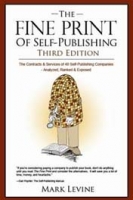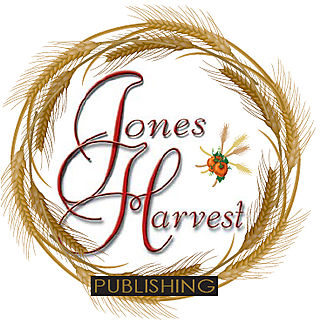I don't know whether Louise Snead, publisher of Affaire De Coeur, is dishonest or stupid or self-deluded..or a little of all three. As you may recall, I took her magazine to task for her unethical editorial practices (accepting advertisements in exchange for reviews) and for an outrageously unethical conflict of interest (her advertising director co-owns a sham publishing company that received cover stories, features, and extraordinarily positive reviews in the magazine).
In subsequent public comments on this blog and others, Snead and Bonny Kirby, her advertising director, unapologetically confirmed both the reviews-tied-to-advertising policy and the conflict-of-interest and defended them as appropriate conduct.
But now, in an Affaire De Coeur editorial, Sneed is trying to reframe the discussion by grossly mischaracterizing my objections, lying about her advertising policy, avoiding any mention of the magazine's conflict-of-interest, and chiding publishers for not rushing to her defense. Snead writes:
These are very serious, slanderous allegations, not even borne out by his own review. He didn't take out an ad and his publisher has never taken out ads either, so how did he manage to get a five star review if what he allegesis true?
As she knows, I never said my five-star review was bought. What I said was that AdC offered publishers the opportunity to buy reviews (and other editorial coverage) in exchange for an ad…and that, in some cases, purchasing a review was required before the book would be reviewed. Don't take my word for it, take Snead's, as stated in AdC's own advertising package:
To compliment your ad and review we also offer interviews or articles.
If you would like an interview let us know 3 months in advance so it
will go in the same issue as your review and ad.[…]Book cover
ad.–This is the cover of the book that goes right beside (or above or
below) the AdC review of your book.[…]We do not review books after
publication unless it is done in association with an ad.
It's sleazy and unethical. And, therefore, I wanted nothing to do with them or their positive review of my book. She pretends not to have this policy in her editorial and then has the gall to say:
I was under the impression people could not simply tell lies on the Internet as if they were gospel. I was wrong.
But apparently she's under the impression that it's okay to tell lies in a magazine, since that is what she's doing. She's denying an advertising-for-reviews practice that both she and Kirby have previously defended in comments they posted here and on other blogs. Did she think no one would notice?
But of equal surprise was how disinterested in the truth some readers are. Some of the AdC staff and I responded to Goldberg's allegations with the correct facts, borne out by statistics which anyone can gather from our magazines, only to be completely ignored.
She's being disingenuous. It's not possible for readers to make an informed judgment about the magazine's biases and conflicts of interest when those relationships aren't disclosed. You won't find any disclaimers alerting readers to reviews and articles that were written as a result of an advertisement being purchased by a publisher or author…nor any disclaimers alerting readers to articles, reviews, and cover stories about publishers and books in which executives at the magazine have a financial interest. Therefore, it is impossible for readers to gather anything from flipping through the magazines about the objectivity of Snead's reviews and articles. She writes:
[…]for 27 years we have strived to produce
a product and reviews that are as good and unbiased as we can make then.
If that were true, she would have informed readers that all the Light Sword books that were reviewed — all but one of which received four stars or better — were published by a company co-owned by AdC's advertising director.
If that were true, she would have informed readers in the cover stories about Light Sword that the company they were raving about was co-owned by an AdC executive.
But those facts, representing an outrageous conflict-of-interest and bias, were not disclosed. And yet, Sneed expected publishers to line up to defend AdC's dubious editorial integrity.
A greater revelation is how cowardly some people are. AdC reviews over 100 books per issue, the vast majority of which do not have ads in the magazine. Hundreds of authors and publishers could have stepped forward and declared that Goldberg's opinions were false but sadly, only a few authors did — some with qualified statements — and only one publisher stepped up to the plate, saying that we review dozens of their books and they've never taken out an ad. And even then, she did it anonymously.
I'm
guessing that publishers didn't defend
of Snead because they have very little respect for the magazine and are
disgusted by the repugnant conflicts-of-interest. I'm making that assumption
based on the tons of emails I've received from authors and editors
thanking me for taking a stand and exposing Snead's highly unethical
editorial practices.
I am not surprised that Snead is using her magazine as a soapbox to present her side of the story nor that I am
depicted as the anti-Christ nor that she doesn't acknowledge the unethical relationship between
AdC and Light Sword Publishing. It makes sense. She doesn't think that
there is anything wrong with her ads-in-exchange-for-reviews policy
or that her advertising director co-owns a sham publishing company that
has been heavily promoted in her magazine and has been found guilty in court of defrauding authors. In her view, the
only wrong here was that I dared to call her on it.
(Thanks to EREC for alerting me to the editorial)



